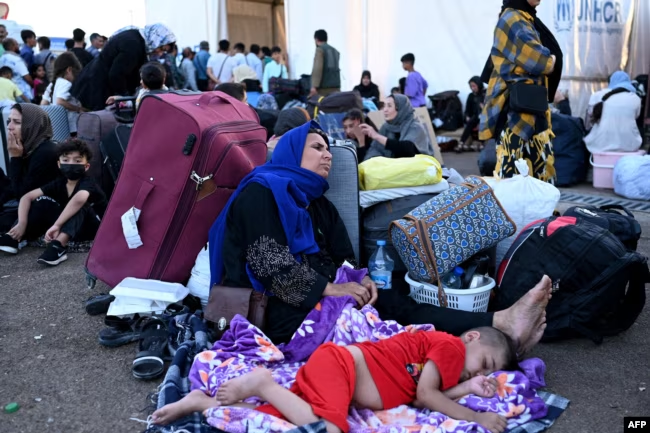Hundreds of thousands of Afghans have departed Iran in recent weeks, following a July 6 deadline set by Tehran for over four million undocumented Afghan migrants to leave the country. The mass exodus has raised alarms among the United Nations and other international organizations due to a severe shortage of funding to assist the returnees.
Mass Repatriations Strain Aid Efforts
According to the International Organization for Migration (IOM), more than 256,000 Afghans returned to Afghanistan from Iran in June alone. This unprecedented surge in repatriations is overwhelming aid agencies, with IOM reporting that it and its partners are only able to reach 10% of those in need.
Iran states it hosts over 6 million Afghans, a significant portion of whom lack legal status. Many Afghan migrants have consistently reported facing discrimination in Iran. Disturbingly, some Iranian media outlets have indicated that even Afghans possessing valid visas have been forcibly expelled during this recent wave of deportations.
Espionage Allegations Fueling Departures
Iran’s recent 12-day conflict with Israel in mid-June has reportedly contributed to the accelerated departures. Iranian state media and social media users have claimed that an unspecified number of Afghan nationals were arrested on suspicion of spying for Israel.
Richard Bennett, the UN Special Rapporteur on human rights in Afghanistan, stated on X on July 5 that “hundreds” of Afghans and members of other ethnic and religious minorities have been detained and “accused of espionage.” Bennett also voiced concern over what he described as the “labeling of Afghans [and] minority communities as traitors” by the Iranian media.
Migrants living in Iran have reported being mistreated in custody and subsequently deported to Afghanistan despite holding valid residency permits and documentation. One young Afghan migrant in Tehran, speaking anonymously, described his father’s recent arrest and torture on “bogus spying allegation” before being deported.
Humanitarian Crisis on Arrival
The IOM and the International Federation of Red Cross and Red Crescent Societies (IFRC), both actively providing assistance, report that many Afghans are arriving with “nothing but the clothes on their back” and are in “urgent need of food, medical care, and support.” The IFRC noted on July 5 that large groups, including numerous children, are arriving at the Islam Qala border crossing, experiencing “exhaustion, hunger, and uncertainty on their journey home” in temperatures exceeding 43 degrees Celsius.
The IFRC also stated that over 800,000 Afghans have returned from Iran since January 2025.
Simultaneously, hundreds of thousands more Afghans have arrived from Pakistan, another major host country planning to expel 3 million Afghans this year. The UN refugee agency (UNHCR) reported last month that at least 1.2 million Afghans have been forced to return from Iran and Pakistan so far this year, exacerbating a crisis that could destabilize the already fragile situation in Afghanistan.







